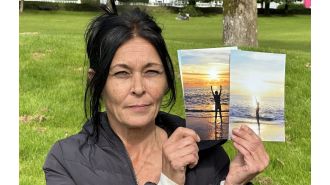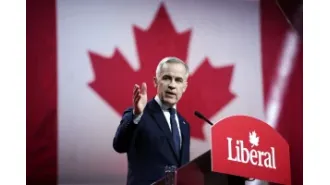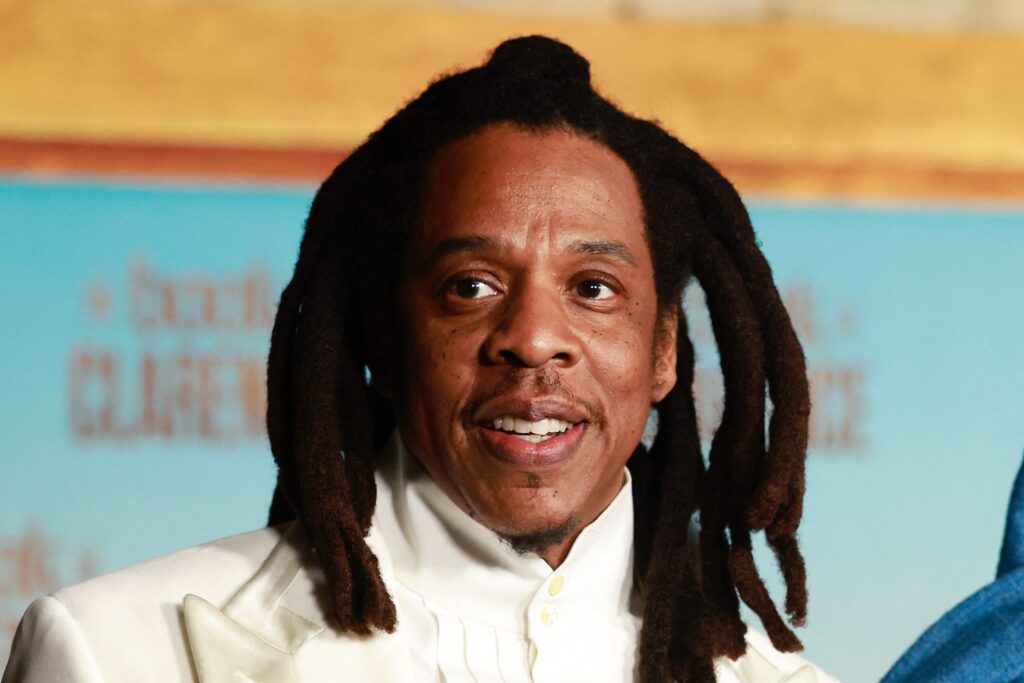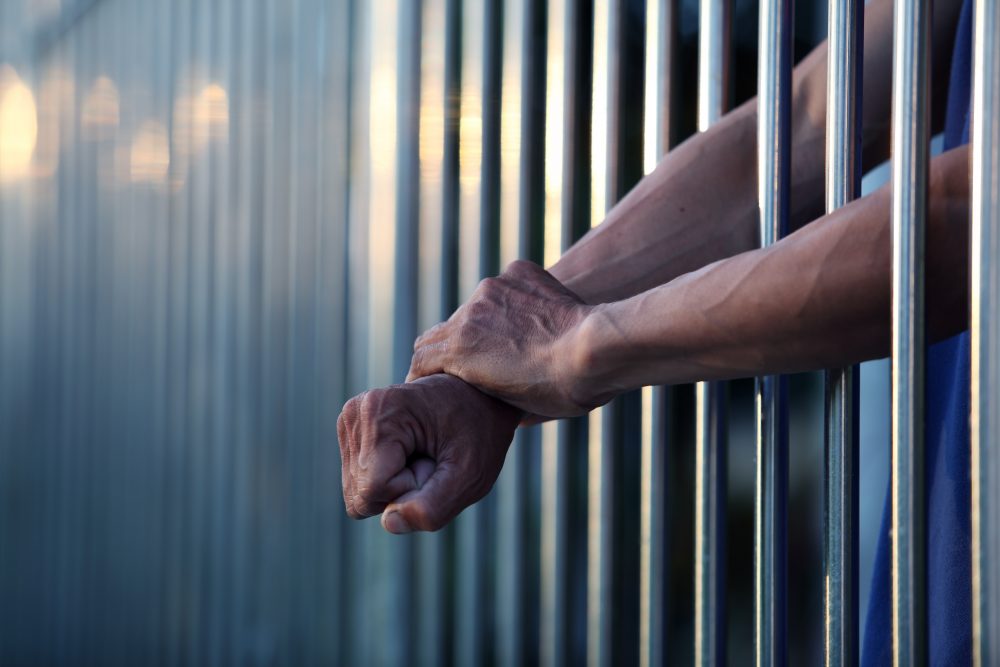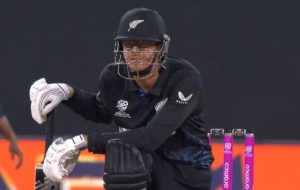Leaders of G7 countries discuss migration, artificial intelligence, and economic security during final day of summit in Italy.
Group of Seven leaders discuss migration, AI, economic security, and the Indo-Pacific on final day of summit.

On the second and final day of their summit in Italy, the Group of Seven leading industrialized nations shifted their focus to some pressing global issues. The leaders discussed topics such as migration, artificial intelligence, economic security, and the Indo-Pacific region. They emphasized their determination to tackle these challenges head-on, especially at such a crucial moment in history.
While gathered at a luxurious resort in southern Italy's Puglia region, the leaders also addressed other major issues, including providing financial support for Ukraine, addressing the conflict in Gaza, climate change, Iran, the situation in the Red Sea, gender equality, and China's industrial policy and economic security.
In their final communique, the G7 leaders reiterated their commitment to working together and with others to address the pressing challenges of our time. They expressed solidarity with Ukraine, called for an immediate cease-fire and release of hostages in Gaza, pledged to invest in sustainable infrastructure in Africa, and made commitments to address climate change and migration.
However, there were some divisions that emerged during the summit, particularly over the lack of a reference to abortion in the final declaration. When asked about the overall success of the G7 gathering, French President Emmanuel Macron was cautious in his response.
He stated, "The aim of the G7 is to create convergence and remove misunderstandings. It's not a place where you make emergency decisions or regulate things." He acknowledged that there were some disagreements among the leaders but highlighted the convergence on issues such as Ukraine and the Middle East.
Macron also said, "It was a useful G7, with useful results. The coming weeks will create opportunities for political progress, particularly in regards to the two conflicts."
The leaders discussed migration as their first topic on Friday. They explored ways to combat human trafficking and increase investment in countries from where migrants often embark on dangerous journeys. This issue is of particular interest to Italy, as it lies along one of the main routes for migrants seeking refuge in the European Union from war and poverty in Africa, the Middle East, and Asia.
Italian Premier Giorgia Meloni, known for her hard-line stance on migration, has been pushing for increased investment and funding for African nations to reduce migratory pressures on Europe. The leaders launched the G7 Coalition to prevent and counter the smuggling of migrants, with a focus on addressing the root causes of irregular migration, enhancing border management, and curbing transnational organized crime. They also emphasized the need for safe and regular pathways for migration.
British Prime Minister Rishi Sunak, who described Meloni as "fantastic," said they saw eye to eye on migration. He stated, "We can't let criminal groups decide who enters our countries." Meloni has a five-year deal with Albania to host thousands of asylum-seekers while their claims are processed in Italy. She has also spearheaded the "Mattei Plan" for Africa, a comprehensive strategy to increase economic opportunities in the region and discourage migration.
On the other hand, Britain has a deal to deport some asylum seekers to Rwanda, although no flights have taken off yet. Human rights organizations have criticized this agreement as unethical and unworkable.
The United States also faces a growing number of migrants, and President Joe Biden has introduced new policies to address the issue after a bill he proposed failed to pass in Congress. However, the future of these policies is uncertain as immigrant rights advocates have challenged them in court.
Apart from the G7 nations, which include Canada, France, Germany, Italy, Japan, the United Kingdom, and the U.S., several African leaders were also invited to the summit to discuss Meloni's migration and development initiatives. These leaders included Algerian President Abdelmadjid Tebboune, Kenyan President William Ruto, and Tunisian President Kais Saied.
However, some rights groups have criticized the lack of ambition in supporting developing countries. The ONE Campaign, which advocates for investment in Africa, found that the G7 and EU institutions' share of aid to Africa is at its lowest point since 1973. The executive director, David McNair, stated, "Without concrete action, the G7 in Italy is nothing more than empty words." He added that while the final statement reflected promises of increased partnership with Africa, there were few specifics on new financing that would be available.
Pope Francis made history by becoming the first pontiff to address a G7 summit. He delivered a speech on artificial intelligence. Other invitees to the summit included Ukrainian President Volodymyr Zelenskyy, Brazilian President Luiz Inácio Lula da Silva, Indian Prime Minister Narendra Modi, and Turkish President Recep Tayyip Erdogan.
The summit began on a strong note of support for Ukraine, with the leaders agreeing to a U.S. proposal to back a $50 billion loan using frozen Russian assets as collateral. However, Russian President Vladimir Putin denounced the freezing of assets as "theft" and vowed to take action against it.
President Biden also signed a bilateral security agreement with Zelenskyy, sending a clear message to Russia of America's support for Ukraine. However, there were some differences of opinion among the G7 leaders, with French President Macron expressing disappointment over the lack of a reference to abortion in the final document.
Last year, the G7 summit in Japan expressed a commitment to providing access to safe and legal abortion for women and girls and pledged to defend gender equality and the rights of the LGBTQ+ community. However, this year, the word "abortion" was absent from the final communique, although there was a mention of promoting sexual and reproductive health rights.
A senior EU official, speaking anonymously, revealed that there was no agreement on including abortion in the final statement. When asked about the reports, Macron stated that he regretted the absence of the issue. He said, "France has enshrined women's right to abortion and the freedom to make decisions about their own bodies in our Constitution." He added that France stands for equality between men and women. However, he acknowledged that not everyone shares this vision.
Meloni, who ran her campaign under the motto "God, Family, Fatherland," has denied that she is trying to roll back abortion rights in Italy, where it has been legal since 1978. However, the opposition has raised concerns about her initiatives, which they believe could undermine these rights, such as giving pro-life groups access to women considering abortions.
10 Views



